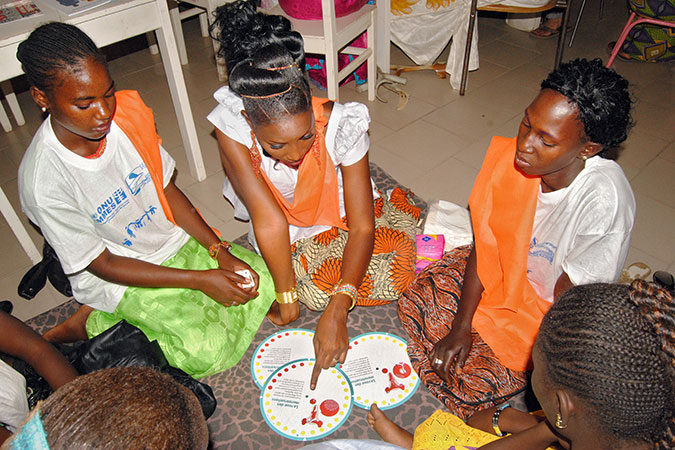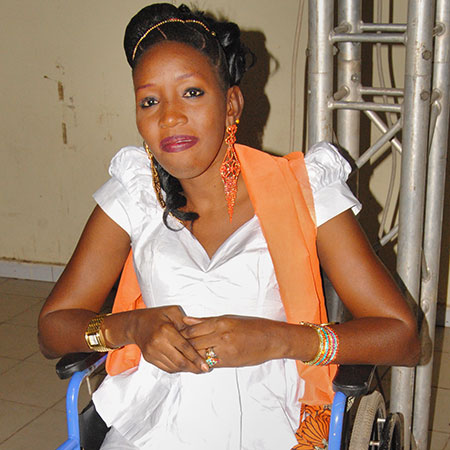In the words of Ndèye Daro Niang: “I am a valued member of my community”
Ms. Niang is one of 213 women with disabilities who have benefited from the Gender Equitable Local Development programme implemented by UN Women in 58 local councils in Senegal, with financial support from Luxembourg. Through workshops and information sessions, women with disabilities have been sensitized and trained on Senegal’s landmark social orientation law, adopted in 2010, and on addressing the unique and specific needs of disabled women in menstrual hygiene management.Date:

When I was a child, I dreamt about going to school. I envied my sisters and brothers when they left the house every morning, but my parents could not afford to buy me a wheel chair, and I could not walk. I stayed at home and accepted my fate. I told myself that I could never have a nice job, become a doctor or a teacher. For many people, education for a disabled person is a waste of time and resources.
How things change…
Today, I know how to read and write and I work as a community development worker in Louga, a town in north-western Senegal. I conduct awareness raising workshops for other women and girls with disabilities on different topics such as HIV and AIDS, tuberculosis and menstrual hygiene management—a taboo topic for many women, and even more challenging for disabled women.

My life turned around when I attended a human rights information session for women with disabilities, organized under UN Women’s Gender Equitable Local Development (GELD) programme. I discovered that institutional arrangements were put in place in my country for the integration of people with disabilities. The social orientation law has existed for many years, but those who are illiterate don’t know about it and cannot access it.
Not all of my problems are gone…I would really like to attend more activities in my community, like a concert or a cultural event. But often I am forced to stay outside of such places because they are not made in a way that I can access them.
However, my life has changed in ways that I couldn’t have imagined before. With my salary as a community worker, I can now support myself economically. What’s more, I help other women and girls with disabilities, inform them about their rights. I am a valued member of my community and I want to educate as many people as possible about the importance of integrating people with disabilities into the society and educating the children. My dream is to build a company that offers employment opportunities to all people, including those with disabilities.